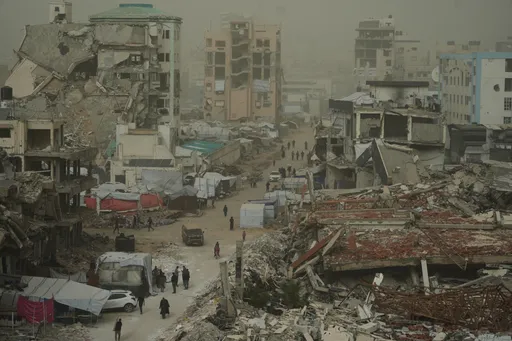For the first time since 2012, Syrians convicted of serious crimes in Germany can be deported. But refugees in the country fear the deportations might not remain limited to criminals.
Germany’s interior ministry on Friday announced the suspension of a law that banned deportations of Syrian refugees back to their war-torn country. The decision triggered a new debate about whether the political climate in Syria was conducive for such a move.
The law banning deportations was introduced in 2012, a year after the war began in Syria, its expiry was set for the end of 2020.
Interior ministers from 16 states in the country rejected the decision to extend the measure, despite the calls from the centre-left Social Democrats (SPD).
The legal change has now opened the way for the deportation of asylum-seekers who are convicted of serious crimes in Germany, which hosts at least 1.5 million refugees.
Why is it controversial?
The ministers who rejected extending the law defend their decision by saying that it will only affect a small number of people who are convicted of politically motivated crimes, such as terrorism, Deutsche Welle reported.
Human rights organisations and other critics, however, argue that the situation in Syria has not improved.
No other country in the European Union has accepted as many Syrians as Germany. But with the new law in place, Germany will be the first EU country to deport people to Syria, although the country is still considered to be a war-zone where the human rights situation continues to be alarming.
Multiple reports in the past year said the disappearances, torture and killing by the regime forces remain pervasive within Syria. The Syrian regime has been campaigning for the return of the refugees and promising safety upon their return. But there are also reports that the ones returned to Syria after the regime’s call were also disappearing and forcibly recruited into the army despite not having been convicted of any crimes.
Another point of concern is the decision’s potential to normalise deportations of all Syrians. The interior ministry says courts would decide deportations on a case-by-case basis whether to deport the convicted Syrians. But for many, that’s not a relief.
In the past, Germany’s deportation decision of Afghans was initially intended to send only criminals back to Afghanistan, but later the country began deporting non-criminal Afghans too.
“We know from previous experiences, like the Afghans that the minute the door for the deportations is open, everyone is a fair game,” Wafa Mustafa, a Syrian who found refuge in Germany told DW.
Mustafa’s father was one of the thousands of people who had been kidnapped after taking part in the country's popular protests against the regime. She hasn’t heard from her father in seven years.
The country’s notorious prison, where most of those who have disappeared are taken to by the regime, is described as a “human slaughterhouse.” A report last year found that over 14,000 people had been tortured to death in the Assad regime’s detention centres.
Why has the decision come now?
There are currently around 90 people with Syrian citizenship who are seen as possibly dangerous, according to the country’s Deputy Interior Minister Hans-Georg Engelk.
“It’s hard to understand why deportation is not even considered,” DW quoted Engelk saying as he announced the decision.
This came after a deadly knife attack by a Syrian refugee came to shock the nation. The accused had a criminal history and harboured "terrorism-related motivations."
The country’s far-right party has been long campaigning for the resumption of deportations. DW says the interior minister, who backed the deportation decision, has been accused of pandering to the far-right.
Is it considered legal by international standards?
According to Geneva Refugee Conventions' Article 33, only people who are deemed dangerous to the security of a country can be deported as long as his or her life won't be in danger upon deportation.
“Amnesty is not standing up for criminals, saying that they’re great. We’re standing for their rights. They also have the right not to be sent back to death,” Franziska Vilmar of Amnesty Germany told DW.
“Under the rule of law that we have in Germany, it is really possible to deal with people who do not abide by the German laws,” Vilmar said, adding that those who are convicted, could be sent to prison in Germany.
Human rights organisations who previously celebrated Germany’s commitment to justice after the country held trials for the regime officers who were later convicted of war crimes, now say that is not possible in Syria.
The UN's refugee agency also reiterated Amnesty's points regarding the risks of the deportations.
"The security risks are too great and the return is incompatible with human rights commitments,” Refugee Aid Managing Director Peter-Ruhenstroth-Bauer told the Redaktionsnetzwerk Deutschland media outlet.
A group of activists are currently campaigning for the freeze of the law with social media accounts named “Syria Not Safe.”























